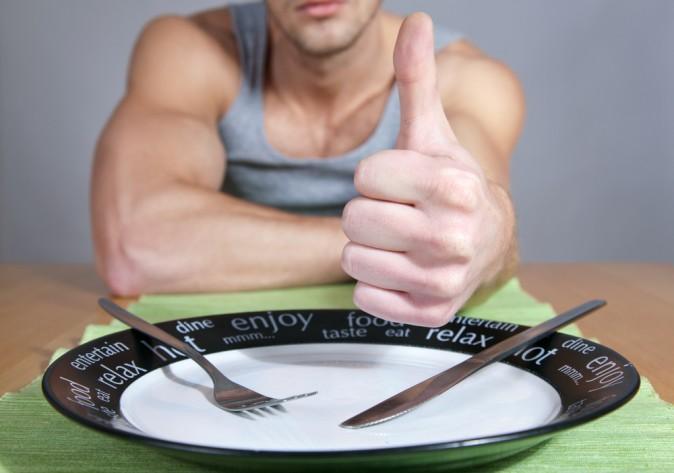Here at Be Well, we’ve been hearing a lot about intermittent fasting lately, and a few of us in the office have been trying it out as an experiment. As I always do with any new health-related endeavor, I’ve been feverishly researching everything about it. I’ve spent hours learning about the benefits, best practices and widely varied opinions that come along with intermittent fasting, and I’m here to share some of my findings with you. Personally, I find it fascinating.
What is Intermittent Fasting?
Intermittent fasting (IF) is exactly what it sounds like – fasting, periodically, with periods of eating in between. In most versions of IF, you alternate between eating for a certain amount of hours and fasting for a certain amount of hours.
The version of IF we’ve been trying here is the 16/8 version (originally made popular by leangains.com). This means you allow 16 hours between your last meal of the day and your first meal of the next day (therefore having an 8 hour eating period each day). For instance, if your last meal of the day ends at 7 pm, you would fast for 16 hours and begin eating the next day at 11 am. If you finish dinner at 9 pm, you would begin eating at 1 pm the next day.
There are other forms of IF out there, like doing a 24-hour fast once or twice per week, but I’ve chosen to focus on the 16/8 method as it seems to be fairly manageable to incorporate into daily life (on most days).
What Are Some of the Benefits?
Some of the benefits of intermittent fasting may include:
-
Improved digestion. Giving yourself more time to digest means you’re not piling more food on top of undigested food, which can greatly improve overall gut health.
-
Heightened awareness of actual, physical hunger. A lot of us are used to snacking and eating all day long to prevent ever feeling hungry, which makes it harder to know when we’re truly full. When you fast, you are actually learning what it feels like for hunger to kick in, and you’ll then feel fullness with more awareness, too. You may even realize you get full on less food than you thought.
-
Enhanced fat burning. It takes about 6-8 hours for your body to burn your glycogen stores for energy, and then you start to shift to fat burning. If you are eating more frequently, it becomes more difficult for your body to shift to burning stored fat.
-
Increased resistance to disease and signs of aging. Fasting allows the cells of your body to focus on healing, repairing, removing dead cells and waste from the body and regenerating new cells.
These are just a few benefits I’ve discovered, but there’s a lot of great research out there and I encourage you to do your own. More on intermittent fasting benefits from Mark Sisson
Wait, so Does That Mean You Don’t Eat Breakfast!?
With the 16/8 IF schedule, depending on your eating hours, many times yes. I know, lots of people cringe at the sound of that, and I totally get it. I’m not saying 16/8 IF is for everyone, or that having breakfast is a bad idea. In fact, having breakfast is a great idea for many people.
In my opinion, you should only try something like this if you’re genuinely excited about it. If you do try it, pay close attention to your energy levels and only stick with it if it makes you feel great. I’ve had positive feelings about it the whole time, which has made my experience really enjoyable.
If this whole idea sounds insane to you, don’t try it. But consider this: sometimes tackling the things that sound most insane brings the most growth. It’s important to be in a positive place mentally for any nutrition plan to work well for your life, so if you can jump in with a sense of adventure rather than drudgery, go for it!
Whether you choose to embark on an IF experiment or not, it’s always important to give your body adequate time to digest. A lighter version that many Ayurvedic practitioners suggest is to give your body 12 hours between dinner and breakfast. This provides for better digestion while still being more manageable if you want to eat early in the day. If you stop eating at 8pm, you start eating again at 8am. Not so bad, right?
The best thing about intermittent fasting is that you don’t have to do it every day. There are always benefits to giving your body some time to rest, even if it’s just a couple of days a week.
This article was originally published on www.drfranklipman.com. Read the original here.
*Image of “intermittent fasting“ via Shutterstock





